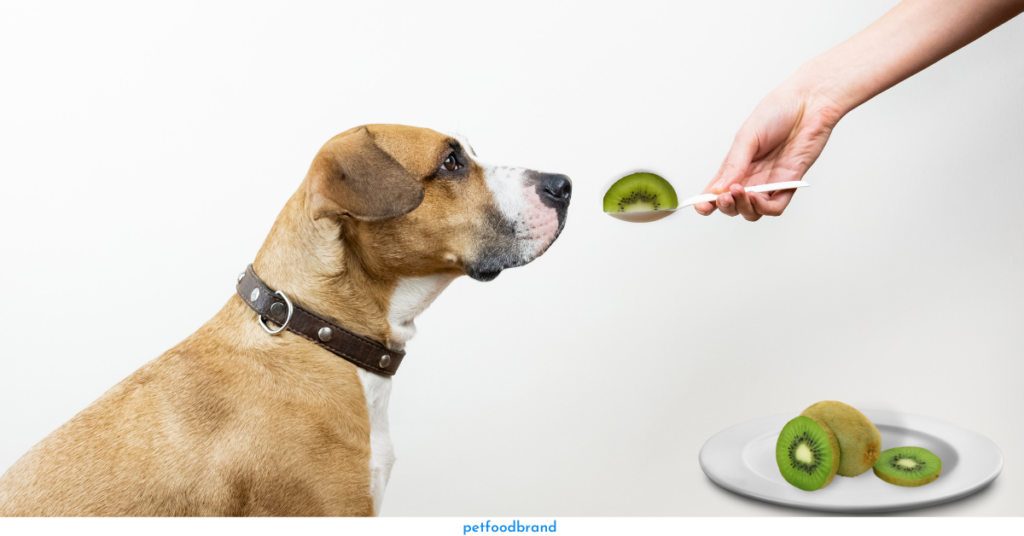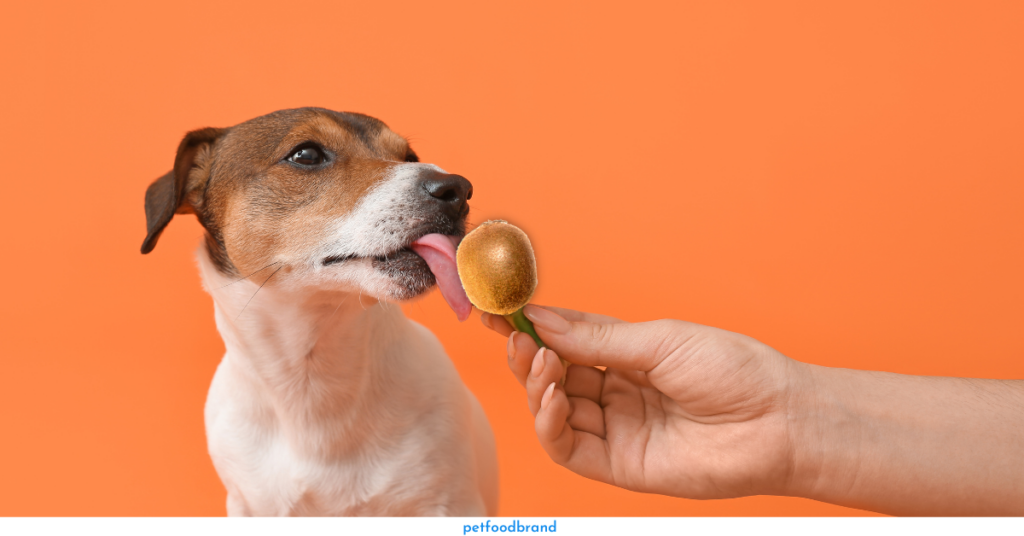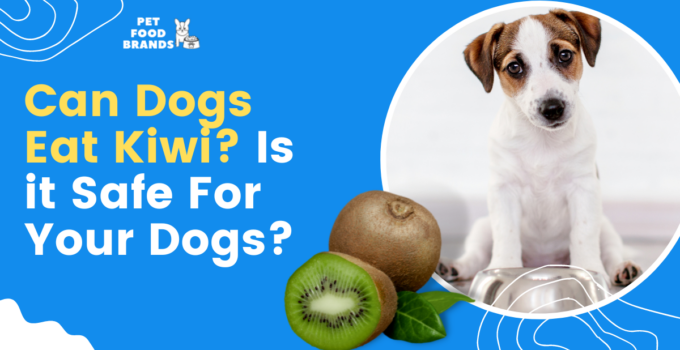Discover the incredible benefits of kiwi for dogs and learn how to safely incorporate this nutritious fruit into their diet. Packed with high potassium levels, abundant vitamin C, fiber, and antioxidants, kiwi offers a range of health advantages.
While dogs can consume kiwi safely, it’s important to be cautious about the seeds, as they can be toxic in large quantities. Explore the benefits, potential side effects, and more about feeding kiwi to your furry friend!
Is Kiwi Safe for Dogs?
The kiwi fruit goes by many names, like kiwifruit or Chinese gooseberry. It is relatively safe for your dog, and you can incorporate it into their diet.
However, there are some points you must consider. Wondering what these considerations are? The consumption frequency and your dog’s dietary requirements will help you decide whether or not this fruit is suitable for your pup.
If you decide to give kiwi to your pet dog, you must ensure you offer it only as a rare treat to help your dog benefit from this fruit’s nutrients. Giving kiwi too often or in large quantities can lead to adverse effects like obesity and constipation.
It’s best to consider the pros and cons of the kiwi fruit before feeding it to your dog. Let’s move to that now!
Benefits of Giving Kiwis to Dogs

Kiwi is easily available all year round and can be a delicious treat that will make your dog jump with joy every time. Not only that, it is also super healthy and nutritious.
But here’s how Kiwi can benefit your pup:
1. Offers Antioxidants
You must be wondering why there is so much fuss around Kiwi. Well, the high levels of antioxidants make it a super famous fruit.
The fruit has an abundance of antioxidants like lutein, beta-carotene, and even folate. These antioxidants help protect cells from free radicals and boost your puppy’s immune system to help them fight infections.
2. Enriched With Vitamins & Minerals
If you think kiwis only have antioxidants, you are wrong. Kiwis are full of many other nutrients that might be helpful for humans and dogs.
You can add kiwi to their daily diet to ensure your pet dog gets a good amount of vitamins A, C, E, and K. These vitamins are essential for a dog as they can help improve their skin, hair, and circulatory systems.
Moreover, your dog will also get minerals like potassium and calcium, which will benefit it by improving muscle growth and even maintaining bone strength and density.
3. Provides Fiber
Is your dog having trouble with digestion and excretion? Kiwi could prove beneficial here.
The fruit is high in fiber content when compared to other fruits. It has insoluble fiber that regulates a dog’s digestion.
Kiwi also offers your dog actinidin, a unique digestive enzyme that can help break down protein and other nutrients in pet food.
Are There any Health Concerns with Feeding Dogs Kiwi?

While it is safe to give your beloved pet kiwi, simply chopping the fruit into smaller pieces might not make it entirely safe for your dog. Even if you take all the precautions, there is still a chance of health issues.
Let’s delve deeper to understand better the risks of giving your dog kiwi:
1. Risk of Choking
A small dog will have a narrow throat, and if you give it large chunks of kiwi, it could pose a risk of choking.
What should you do here? Ensure you always cut the kiwi into small, bite-size pieces and give it to your furry friend. It will also make it easier for dogs with sensitive guts to break down the fruit and digest it more easily.
2. Cause Constipation
Consuming too much kiwi can lead to an increased fiber intake and constipation. If the dog consumes the fruit’s skin, it can lead to severe intestinal blockage.
Constipation can be uncomfortable for a pet dog, making it difficult to pass the solid waste. If the blockage doesn’t improve or is left untreated, your dog might suffer from serious health conditions like obstipation and megacolon.
3. May Lead to Obesity
Another downside to feeding dogs kiwi is the excessive sugar level and the number of calories, which often leads to excessive weight gain and health issues related to obesity. Gaining excess weight could harm your pooch’s joints and hips, affecting its mobility and lowering the quality of life.
Introducing Kiwi to Dogs: How to do it Safely?

I am sure you are now aware of the health benefits and side effects of giving kiwi to dogs. So now, it’s time to help you understand how to feed them.
1. Start Small
Planning to make a change to your dog’s daily diet? Then always start small! Feed kiwi in small quantities so the gastrointestinal system easily adapts to all the new ingredients.
Never make a drastic change to the dog’s daily diet. This might shock the digestive system and even damage the digestive tract. Although kiwi is a fleshy and edible fruit, ingesting its seeds and skin in large amounts can be harmful to your pup.
2. Keep an Eye Out For An Allergic Reaction
Finally, introduce kiwi into your dog’s diet. It’s now time to observe your pet for indications of food allergies. It can be in the form of excessive swelling, breathing difficulties, or digestive issues.
Stop giving it similar fruits such as bananas, avocados, and watermelons if symptoms appear.
Frequently Asked Questions
What Happens if My Dog Eats Kiwi Seeds?
It is safe for your dog to consume kiwi seeds, but they should not be ingested in large quantities.
Are Golden Kiwis Safe For Dogs?
Yes, golden (or yellow) kiwis are entirely safe for dogs.
Can Kiwi Upset A Dog’s Stomach?
No. If given gradually and in smaller quantities, kiwi will not disrupt your pup’s stomach or digestion.
Final Thoughts
Kiwi is a super delicious and healthy fruit that offers lots of vitamins and minerals to your dog. It can be a delicious treat that you can offer to your pup every now and then; however, you must ensure you slice it and peel off the skin.
But remember to give it in small quantities till your pup adjusts to the fruit. And look out for the signs of digestive issues and allergies. Don’t hesitate to ask a veterinarian on how to add kiwi to your pup’s daily diet!

Ankita is a passionate pet lover and head of content at Pet Food Brands. With her extensive knowledge and research, she provides pet owners with top-quality information on dog food and nutrition. Her dedication to improving the lives of dogs makes her a leading voice in the industry.




